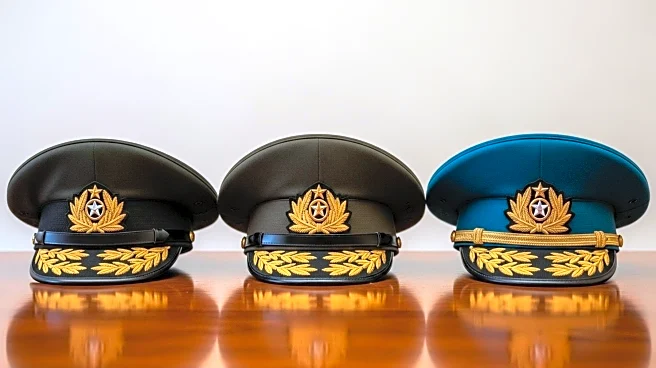What's Happening?
China's President Xi Jinping, Russian President Vladimir Putin, and North Korean leader Kim Jong Un appeared together at a military parade in Beijing, showcasing a united front. The event marked the 80th anniversary of the end of World War Two and featured a display of China's military advancements, including nuclear missiles and other sophisticated weaponry. The parade was attended by various international dignitaries, although many Western leaders were absent. The gathering highlighted the strengthening ties between China, Russia, and North Korea amid global tensions.
Why It's Important?
The public appearance of Xi, Putin, and Kim together sends a strong message of solidarity among these nations, which could have significant geopolitical implications. This alliance challenges the current U.S.-led global order and may influence international diplomatic and military strategies. The display of advanced military capabilities underscores China's growing power and its ambition to rival Western military strength. This development could lead to increased tensions and a potential arms race, affecting global security and stability.
What's Next?
The international community will likely scrutinize the implications of this alliance, particularly in terms of military cooperation and geopolitical strategies. The U.S. and its allies may need to reassess their diplomatic and military approaches in response to this emerging power bloc. Future interactions between these nations could further define the global balance of power and influence international relations.
Beyond the Headlines
The parade's emphasis on military strength and the presence of sanctioned leaders like Putin and Kim highlight the shifting alliances in global politics. This event may also reflect China's strategic positioning as a leader of an eastern-led alliance, challenging Western dominance. The absence of Western leaders at the parade underscores the growing divide between these power blocs.









